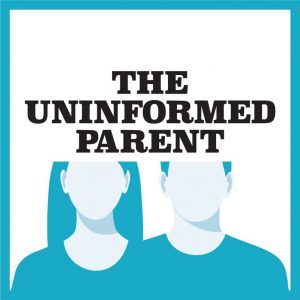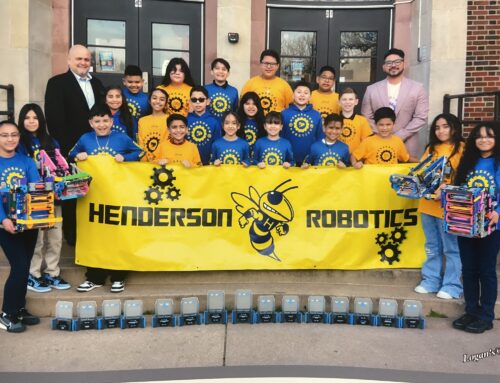 Episode 15: In this episode, we speak with education expert Pedro Noguera and Dallas ISD assistant superintendent Cecilia Oakeley about what parents should consider when choosing a school.
Episode 15: In this episode, we speak with education expert Pedro Noguera and Dallas ISD assistant superintendent Cecilia Oakeley about what parents should consider when choosing a school.
Podcast credits: Keri Mitchell, produced by Advocate Magazines
Full transcript
When Pedro Noguera was in town last spring as the keynote speaker for Commit’s community scorecard event, the sociologist, professor and father of five took a few minutes to tell us what he thought parents should be looking for in a school. Ultimately, we want academic environments to inspire our children to be lifelong learners, Noguera emphasized, noting that “if our kids get good test scores and grades, but they’re still miserable, we haven’t succeeded.”
Pedro Noguera: So some of the basic things that we should do, we ignore, like make sure the kids are engaged. I want to challenge you to start asking some different questions about your schools and about the work going on here, because I think we’ve been asking the wrong questions.
Keri Mitchell: I’m interested in, what’s your expertise and passion, and then what advice would you give to parents who are thinking about these kinds of things? Are you a parent?
Pedro Noguera: I am. I am. I have five kids. So, I’m a sociologist at UCLA. I’ve been studying education for many years. My passion, my focus is on how what’s happening outside of schools affects what’s happening inside of schools. So issues like inequality, poverty, immigration are all kind of critical to my work. I regard schools as being really important to our society, to what kind of society we become and what kind of democracy we are. As a parent, you always have to choose what’s best for your child, and that’s why when parents make a choice, I never criticize because I assume that they want to do what’s best for their child. At the same time, we always have to be mindful of the fact that our personal and private choices have larger consequences and implications for our communities and for our society. We live in a country where, in almost every city, the affluent send their kids to private schools and the poor and sometimes middle class send their kids to public school. That divide reinforces the inequities in our society, because when those with means and wealth are not invested in the public sector and the public schools, over time, the quality of those schools goes down. We know that, in our society, most institutions that serve poor people are usually not very good, and that’s not because poor people are not very good. It’s because the same focus on quality is not there from those who provide the service. So we need an institution that serves everyone right and ideally serves them well. There aren’t many like that.
Keri Mitchell: Knowing what you know, how did that impact what you chose?
Pedro Noguera: Because I went to public school myself, and then I taught public schools and served on the school board, [I knew] staying in the public school system was important. At the same time, I knew that sometimes kids don’t get what they need and deserve. Therefore as a parent, you have to compensate. What they don’t get in school [you have to make up for] outside of school, at home or through enrichment, you know, travel and museums and things like that. So that’s the way I’ve made my choices, but not every parent has the time on their hands to do that. So they’re, I think, at a real disadvantage.
Keri Mitchell: Sure. There’s always this kind of elusive “best,” right? Like, if I do the wrong thing by my child, I’m going to screw them up for life. So what should we think about? What should we be making decisions about rather than what we shouldn’t?
Pedro Noguera: Well, I think to some degree — and this is strictly true amongst affluent parents — there’s too much anxiety about their kids, about their education, about their success. You see these parents who are overly involved, who overly protect their kids from any kind of harm. As a kid, I played outside. Kids don’t play outside anymore and the world’s changed, so I’m not saying that you don’t have to be careful as a parent. But I think the mistake I see some parents make is, they’re overly cautious. I would say that if our kids get good test scores and grades but they’re still miserable, we haven’t succeeded. And so we want kids to be happy. You want them to be independent. We want them to be creative people, and we want them to be lifelong learners. That is not kids who are just satisfied with an A, but who want to learn more. Those are the kinds of people who ultimately will be adaptable to change and who ultimately are gonna find joy in learning, which is what we should be after.
Keri Mitchell: Testing is a reality in today’s present day education landscape. Cecelia Oakeley’s job in Dallas ISD is to oversee the assessment and evaluation of students. The words “evaluation” and “assessment” tend to conjure up images of high-stakes testing, but as Cecelia Oakeley explains to us, the district focuses more on the growth of students and the connection between teachers and students.
Keri Mitchell: So first of all, tell me the system you guys are using to look at schools. You’re looking at the whole child. What does that mean?
Cecelia Oakeley: We don’t want just to have academic achievement. We want to have information about the student. There’s participation and extracurricular activities, for example, how the students feel about the relationships at the schools, how the staff feel about the school and how the parents feel. So those four areas are added into our achievement section, and we pull that all together to come up with some new labels.
Keri Mitchell: The parent surveys, the student surveys, how they feel about the relationships, whether they participate in extracurriculars. Why are those things important in terms of how a school is doing?
Cecelia Oakeley: We know that if children are connected, have good relationships with the adults, the parents have good relationships with adults, they’re going to learn better. They are able to focus. They’re able to learn, and so we really want to incorporate all that.
Keri Mitchell: That’s really interesting. So it’s not just them showing up and a, you know, phenomenal teacher who can teach really well? It’s the relationships they’re making?
Cecelia Oakeley: The teacher can be a really good teacher, but if that student is not there connected and not sitting there listening, they’re not going to learn. So we need them to be connected.
Keri Mitchell: DISD really values growth. That’s something that is factored into the state accountability, but you’re looking even beyond that. Why is that so important?
Cecelia Oakeley: We want to see how our students are adding value or the teachers are adding value to the students. We can have higher performing students coming in. A teacher may not even have to do anything because they’ll do well, but when we look at those students compared to similar students, if they’re not growing that’s not good. So we look at all groups of schools and make sure that teachers are adding value to the students no matter where they begin, wherever they start.
Keri Mitchell: So in other words, this system won’t just look at a school where you already have students who are maybe, you know, have very educated parents, lots of resources, so we know they’re probably going to do well. It’s looking at how those teachers are getting them from that, or from a real place of either poverty or just lack of knowledge, and getting them from one place to the other.
Cecelia Oakeley: Right. That could mean that they’ve grown. They may not still be at a passing rate, but if we see that they’re really moving the student and eventually they’re going to be passing and they’re going to eventually move to even higher, we know that we’re adding value and that they are moving. We want growth to be our priority in our district. I think the state accountability incorporates that, too, and we want it at all levels. Wherever they are starting, we want to see that they’ve added value.
Keri Mitchell: So if I’m a parent looking at a school, what are some important things for me to look at beyond just the actual either letter grade or distinction that is assigned to a school? What am I trying to understand?
Cecelia Oakeley: Well, we do have a couple areas they can look at. The new SPF, the school performance framework, where we’re adding or creating values. We have our SEI, our school effectiveness index. That is 30 percent of [the school’s score] because we do value growth, and so we do have that incorporated in there. So you could look at those.
Keri Mitchell: And a good SEI score is…
Cecelia Oakeley: 50 is average. Anything above 50, a half a standard deviation, 54 and up is really adding value compared to the district. This is all within the district. We have values in our booklets that we have from communications, because it will list the SEI. It is embedded in our school performance framework, and it’s worth 30 percent. It’s public on our domain, our evaluation accountability website, or my data portal. It’s all available there. So those are areas that you can look at and see how your school’s doing. There are a lot of kids that can be adding value and some not, but it kind of combines all of it. We want to make sure we’re doing it for all students.
Keri Mitchell: Wonderful. Thanks so much for your time.
Thanks for listening to The Uninformed Parent. In the next episode, we’ll talk to a family about their experience at their neighborhood school, Lida Hooe Elementary.
This podcast is a production of Advocate Magazines with music by HookSounds.[/vc_column_text][/vc_column][/vc_row]





